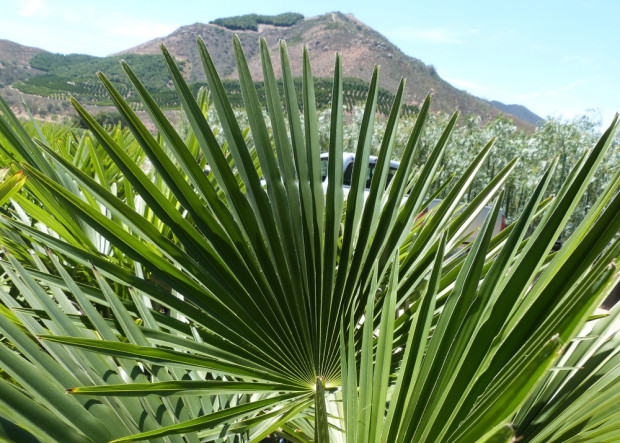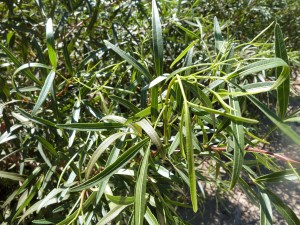Multi-purpose Palms
For customers who want to establish an exotic look in their landscape, or even inside their home, palm trees can be a great choice. Customers can choose palms with many different features, be it compact size, cold tolerance and even unique trunk forms.
If you’re in a climate with mild winters, you can grow most varieties of palms. If winter temperatures in your area drop into the 20s there are certain palms that will provide a tropical look but still weather the cold. Windmill Palm, Trachycarpus fortunei is one of the most cold-hardy palms available; it’s also one of the most versatile. Plants can tolerate temperatures down to 10 F degrees. The beautiful compact plants produce slender, dark green fronds in the pattern of a fan. Undersides of foliage are silver, providing a nice contrast. Windmill palms are perfect for planting as landscape focal points, around pools and even in large planters.
For a truly impressive large palm it’s hard to beat Mexican Fan Palm, Washingtonia robusta. These massive palms can grow up to 100 feet tall; but you’ll more often see them top out at about 40 to 50 feet in urban environments. Mexican fan palms have good cold tolerance and can be grown in many parts of the country. Make sure your customer has lots of space when planting this palm; due to their size they’re not the best fit for small urban yards!
If customers are looking for an ultra-unique landscape palm, be sure to introduce them to the ponytail palm, Beaucarnea recurvata. This is a slow-growing palm tree featuring a very wide base that can reach several feet in diameter. The leaves sprout from the top and cascade like a pony tail would. You’ll most often see ponytail palm used as a houseplant; but in warmer climates where temperatures don’t drop below 32 F degrees, they make a truly impressive landscape feature. Plant into large containers to encourage the swelled trunk growth. After about ten years, plants will start producing large clusters of white blooms in summer.
Most palms need a sunny location to thrive. If customers plan to use their palms as indoor specimens, be sure they have bright light levels indoors to support their palms.

